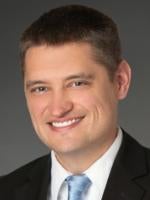The California Supreme Court handed employers a consolation prize this week, holding that an employer does not incur monetary penalties if there is a reasonable, good faith dispute over whether the employer violated the wage statement statute. Naranjo v. Spectrum Sec. Servs., Inc., 2024 WL 1979980 (Cal. May 6, 2024).
One of the employer’s workers in this case filed a putative class action, alleging the employer violated California Labor Code section 226 because it failed to report missed-break meal premiums on employees’ wage statements. Section 226 imposes a penalty of up to $4,000 per employee when an employer commits a “knowing and intentional failure … to comply” with the wage statement law.
The employer countered that even if it did have an obligation to report premium pay owed on employees’ wage statements, this failure was not “knowing and intentional” under Section 226. In fact, until 2022, it remained an unsettled issue whether wage statements needed to include premium pay for missed meal breaks. At that time, this same case reached the California Supreme Court for the first time, and the Court ruled that employers are required to treat missed-break premium pay as wages. Naranjo v. Spectrum Security Services, Inc., 13 Cal. 5th 93 (2022). You can find our blog post on this prior decision here.
The case made its way back to the California Supreme Court again, this time for the Court to determine whether defendant “knowingly and intentionally” failed to provide employees proper wage statements. California appellate courts had been split on exactly what “knowing and intentional” means in this context. The Court held that if an employer “reasonably and in good faith believed” it provided the proper wage statements, it has not violated Section 226. Previously, some California courts had held that a violation is “knowing and intentional” if the employer is aware of the “factual predicate” underlying the violation — for instance, that it has not reported certain information on an employer’s wage statement, even if “the employer believed in good faith that it had complied with the law.”
The inaccurate wage statements were all issued between June 2004 and September 2007, though the question of whether premium pay had to be recorded on an employee wage statements remained unsettled law until 2022 (the first time this unfortunate employer was before the Court). Thus, the Court held that “[g]iven the uncertainty and confusion, it was not objectively unreasonable for [the employer] to believe [during this period] it had no obligation to report meal premiums as wages. Imposing liability under these circumstances would penalize [the employer] not for failing to apprise itself of its obligations, but for failing to predict how unsettled legal issues would be resolved many years down the line.”





 i
i


